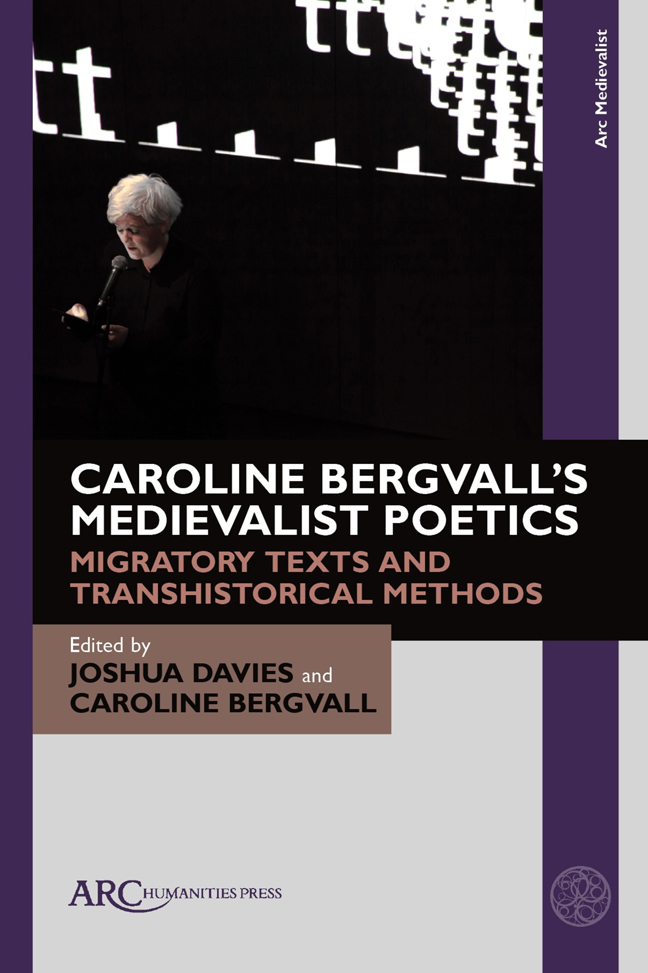Chapter 16 - Alisoun’s Friends: Caroline Bergvall’s Community of Alisouns
Published online by Cambridge University Press: 20 February 2024
Summary
She knew myn herte, and eek my privetee.
Geoffrey Chaucer, “The Wife of Bath’s Pro logue”My thanks to all of youse near and far who showed me alley-ways backstreets side-doors, unlatched maindoors, helped shape a route of the stalemate, shifted my perspective on the significance of access and networks and influence.
Caroline Bergvall, Alisoun SingsWHAT DOES IT mean to speak of friendship between a reader and a fictional charac-ter? How does one feel a sense of friendship with someone who doesn’t exist? “Friend” has a wide range of meanings in modern English, and many of them have persisted not only since Chaucer’s time but since the Old English period. Meanings of “friend” range from someone not hostile or an enemy (as in warfare) or someone we know well enough to say hi in public without feeling embarrassed (according to anthropo logist Robin Dunbar) to a close relative to a patron (as with “the Friends of the British Library”) to someone who enhances or betters someone’s lifestyle (as in some social science approaches that informed a recent controversial New York Times article) to a romantic partner. But the definition that most interests me is that of a close and informal—as in not requiring validation by shared profession, kinship, social class, etc.—relationship of trust and intimacy. And of course this sense can be indicated by a variety of other terms too, including the Old (and Early Middle) English wine, the Middle English fellaw, the Middle Scots cummar (more on this term below), figurative uses of “brother” and “sister” across Middle and modern English, and more recent terms like “squad,” “bestie,” and “ride or die.” In this essay, I consider how Caroline Bergvall’s Alisoun Sings cre-ates a sense of intimacy between the text’s narrator(s) and readers that we can read as akin to women’s friendship. I argue that Bergvall builds on the sense of intimacy created by Chaucer’s Wife of Bath, Alisoun, who addresses not only her fellow pilgrims but also Chaucer’s female readers, by having her multiple narrators speak to each other and to their readers. This creates a sense of a community of women who share secrets, fears, pain, pleasures, and hopes for the future.
- Type
- Chapter
- Information
- Caroline Bergvall's Medievalist PoeticsMigratory Texts and Transhistorical Methods, pp. 137 - 146Publisher: Amsterdam University PressPrint publication year: 2023

